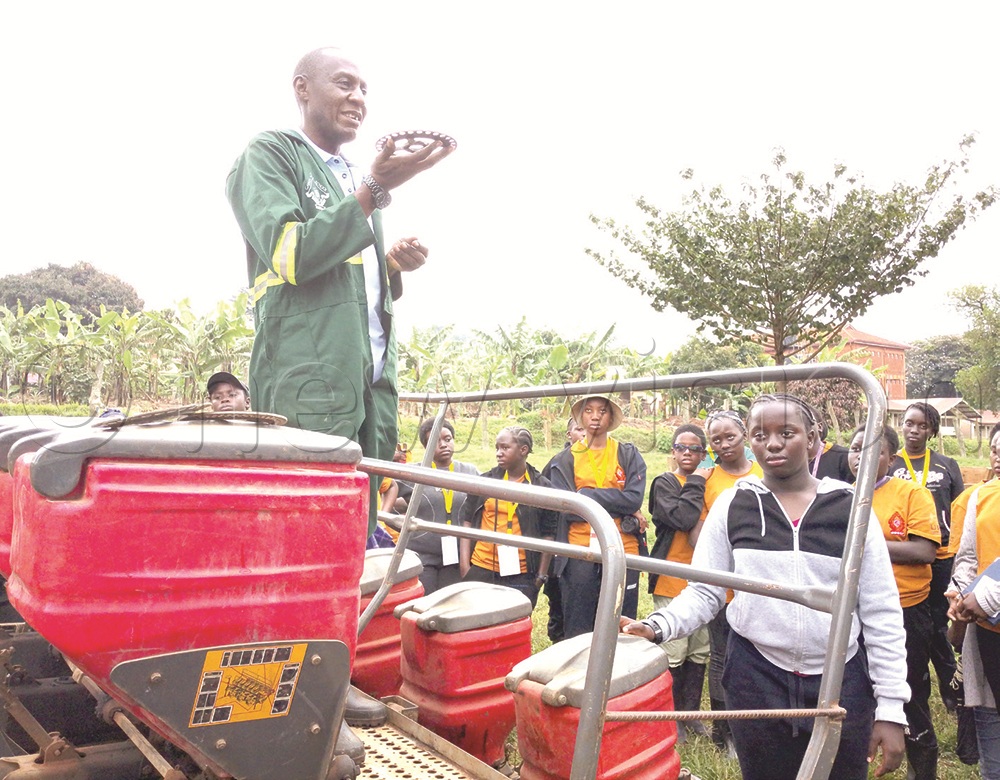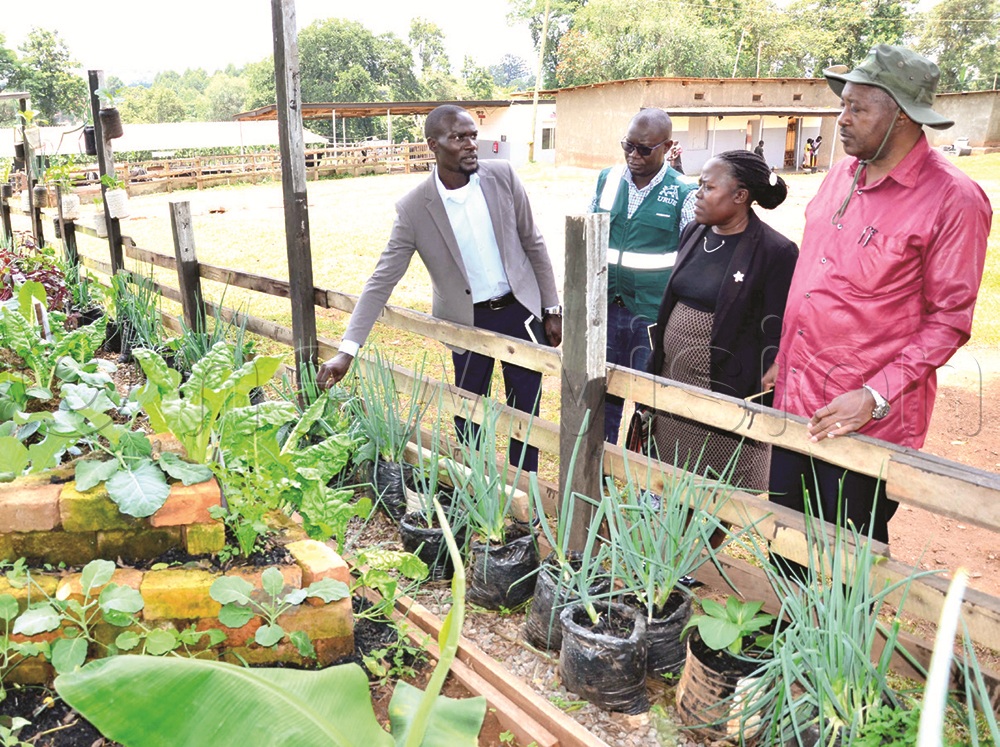Youth asked to choose the right farming enterprise
“Agriculture is cool when you pick the right segment of the value chain and stick with it,” Byantwale told the students.
Byantwale encouraged students to look beyond traditional careers and embrace farming. (Photos by Herbert Musoke)
________________
Agriculture is not just about digging — it is about smart choices, big opportunities and real income. That is what Stephen Byantwale, the commissioner for crop production at the agriculture ministry, told students at the 11th annual School Farm Camp held at Gayaza High School recently.
Sharing his journey, Byantwale revealed how he turned poultry farming into a profitable venture. Starting with 7,000 layer birds in 2013, he now collects 1,200 trays of eggs every week. Without detailing the net earnings, he says he saves sh10m per month — all because he chose the right enterprise.
“Agriculture is cool when you pick the right segment of the value chain and stick with it,” he told the students.
Climate-smart agriculture
This year’s camp was held under the theme Skilling the Youth in Climate-Smart Agriculture and Environment Conservation.
It was organised by Gayaza High School with support from URUS, GROW Project, Engineering Solutions, NUCAFE and SUMZ, among others.

Students were taught how value addition translates into financial gain.
Byantwale encouraged students to look beyond traditional career aspirations like law, medicine and engineering, which may not align with available job opportunities.
Citing President Yoweri Museveni’s wealth creation tours, he noted that 70% of government jobs are in agriculture, with the rest in the private sector.
“Let us put into practice what you have learned from the experts who have been teaching you,” he urged.
Focus on the value chain
In addition to choosing the right enterprise, Byantwale advised youth to specialise in a specific segment of the agricultural value chain.
“I commend Newmans [snack makers] for their work in value addition and NUCAFE for adding value to coffee. In Geneva, a cup of coffee goes for 13 euros (about sh54,000). That is the power of value addition,” he said.
He emphasised the importance of working with extension workers and research officers to ensure success from production to post-harvest handling and marketing.
“Every stage — from enterprise selection to value addition — requires technical support. That’s how you produce for a guaranteed market,” he added.
Smart practices
Byantwale also stressed the importance of climate-smart agriculture, noting the unpredictability of weather patterns.
“Temperatures can swing from 14°C to 20°C in a day. We must adopt climate-resilient practices to sustain agriculture,” he said.
During the five-day camp, students learned about irrigation systems and climate-resilient dairy breeds, such as the improved Jersey cow.

Byantwale (right), Juliet Mutungi the deputy headteacher of Gayaza High School, Kabanda and Muhinda touring the school farm.
According to Dr William Kabanda of JJJ Farm, the Jersey breed produces 20–35 litres of milk, consumes less feed and emits less methane — making it environmentally friendly.
Economics of value addition
Students were trained in value addition techniques for various commodities, including: n Coffee (cappuccino, caffè latte) n Potatoes (crisps) n Bananas (juice) n Eggs and milk (mayonnaise, ice cream, yoghurt) Joseph Nkandu, the executive director of NUCAFE, emphasised the need to bridge the gap between primary production and industry.
“Schools focus a lot on primary agriculture. We show students how value addition translates into financial gain,” Nkandu said.
At the NUCAFE factory in Namanve, students toured the coffee processing stages — from raw beans to market-ready products.
Govt support
To support future training, the agriculture ministry donated artificial insemination (AI) equipment to Gayaza High School.
The items were handed over by Byantwale during the camp’s closing ceremony and sourced through the National Animal Genetic Resources Centre and Data Bank (NAGRC).
Dr Peter Beine, the executive director of National Animal Genetic Resources Centre and Data Bank (represented by Dr Jackson Mubiru), said the donation strengthens a 15-year partnership with the school.
Patrick Muhinda, the school farm manager and camp coordinator, listed the items received as an insemination field flask, an AI kit and one tonne of mineral lick.
“These tools will help breed high-value animals and teach students practical AI technology,” Muhinda said.
Fact file
Camp participation
The camp attracted over 500 students from schools across Uganda, including:
- Ntare School
- St Mary’s College Kisubi
- Nabisunsa Girls
- Atlas High School
- Ndejje Secondary Schoo.